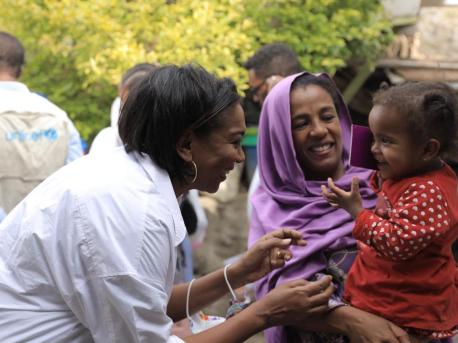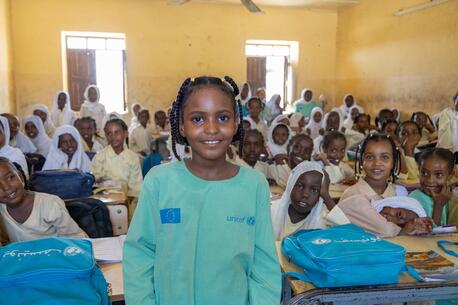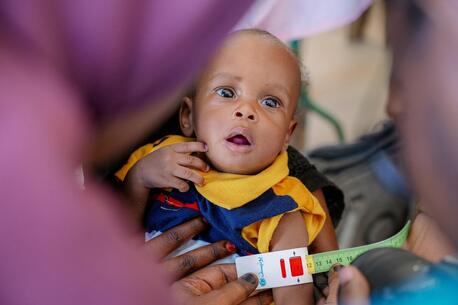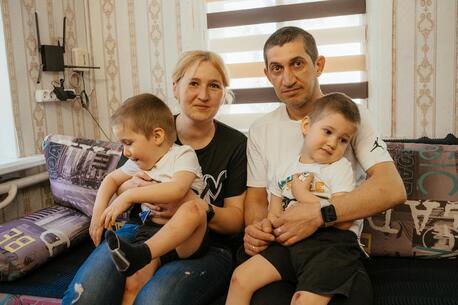
Amid Conflict in Ethiopia, Proof of the Enduring Power of Mothers
Ongoing conflict in northern Ethiopia has displaced hundreds of thousands of people, mainly women and children, and deprived many more of their livelihoods. On a recent visit to Ethiopia's Amhara region, Rania Dagash, UNICEF's Deputy Regional Director for Eastern and Southern Africa, found hardship and suffering — but also signs of hope and the unshakeable strength and kindness of mothers. This is her story:
I went to Dessie town, Amhara region, Ethiopia, to see the impact of the conflict on children and women and UNICEF’s response.
I was both heartbroken and inspired at the same time. Saddened by the trauma families have endured due to the conflict, but also amazed by the deep generosity of women in the community.

Meet baby Rahima and her mother, Amina.
In Arabic, Rahima means ‘the merciful one’ and Amina means the ‘safe one.’
Last year, Amina and a few other women in a small community just outside of Dessie town, found a newborn baby — Rahima — lying on a corrugated roof on top of a hut, abandoned, wrapped only in a sheet.

Did these women walk away, women who are living in abject poverty, women who are dependent on the UNICEF-supported humanitarian cash stipends that enable them to feed their families, enable them to survive? The answer is NO. Amina stood up to the meaning of her name: ‘safe one.’
They took baby Rahima to the UNICEF-supported hospital in Dessie to make sure she was healthy. They also reported her situation to the local child protection services to initiate family tracing.
When no one came forward to claim baby Rahima, these committed women did not abandon her. Eventually Amina said, “I will take her. I don’t have much and I have two children to feed, but she will become my child and I will take her as if she is my own.”
This was so incredibly humbling for me and I was awestruck by her story. Amina looked proud and tall. Her smile rarely left her face, nor that of Rahima.
We hear and read stories of crises in Ethiopia, unimaginable horrors. But what we do not hear about enough are the stories of hope, stories of generosity — the story of Amina and Rahima.
UNICEF thanks Sweden for their continuous support for the Humanitarian Cash Transfer Program in Ethiopia. Your contribution to UNICEF can make a difference for children growing up in conflict zones. Please donate today.
Photos: On a recent visit to Dessie town in Ethiopia's Amhara region, Rania Dagash, UNICEF Deputy Regional Director for Eastern and Southern Africa (in white shirt) met baby Rahima and her mother, Amina, who adopted her after finding her abandoned as a newborn. © UNICEF Ethiopia/2022/NahomTesfaye
HOW TO HELP
There are many ways to make a difference
War, famine, poverty, natural disasters — threats to the world's children keep coming. But UNICEF won't stop working to keep children healthy and safe.
UNICEF works in over 190 countries and territories — more places than any other children's organization. UNICEF has the world's largest humanitarian warehouse and, when disaster strikes, can get supplies almost anywhere within 72 hours. Constantly innovating, always advocating for a better world for children, UNICEF works to ensure that every child can grow up healthy, educated, protected and respected.
Would you like to help give all children the opportunity to reach their full potential? There are many ways to get involved.





